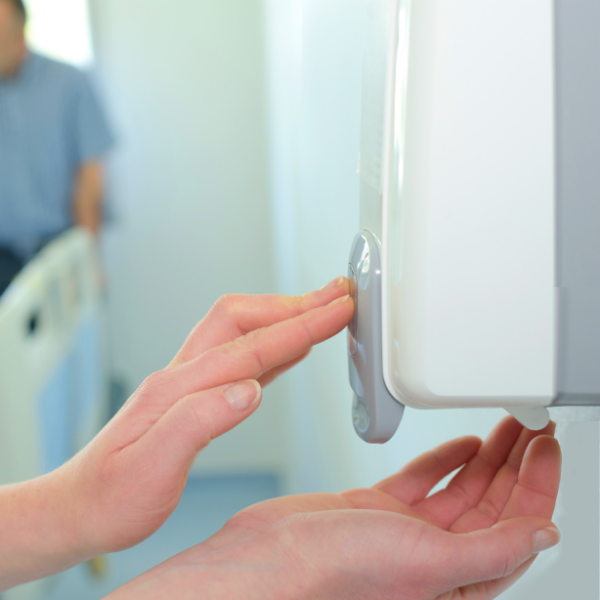Hand hygiene effectiveness for infection control in hospitals
Most of us aren’t aware of the importance of proper hand hygiene for infection prevention and control in hospitals. This is extremely alarming since several diseases are usually caused by germs and bacteria that enter our bodies through our hands.
When the Hungarian doctor Ignaz Semmelweis started advocating the idea of preventing the spread of viruses and diseases through proper hand hygiene in the 1880s, he was primarily ignored.
Even after proving through various experiments and publications that proper hand washing reduced the mortality rate to below 1%, his observations were continuously rejected by the medical community.
Today, you’d be shocked if you walked into a hospital and were not given an antibacterial hand sanitizer to clean your hands or did not spot regular reminders like signboards about how to wash your hands properly everywhere.
Hand hygiene is integral to staying hygienic, but it is hard to believe it hasn’t always been a priority. Still, is hand hygiene being taken seriously enough, especially for hospital infection control?
Despite being a fundamental and simple healthcare intervention that hospital workers can adopt to prevent various hospital-associated infections (HAIs), a vast amount of evidence shows its compliance could be better, with hands being washed infrequently or inadequately.
In this article, we will explore how washing your hands can prevent the spread of germs, bacteria, and diseases such as typhoid, diarrhea, etc., and the effectiveness of hand hygiene for infection control in hospitals.
How cross-infection via hands occurs
On any given day, you come in contact with several touchpoints that expose your hands and fingers to millions of germs and bacteria.
Out of the several ways the germs and bacteria can spread in the hospital, below are some of the most common ones:
- Patient’s skin or objects surrounding them.
- Physical contact with a healthcare professional.
- Not using adequate hand hygiene equipment such as antibacterial soap, antibacterial liquid hand wash, or hand sanitizer.
Knowing about germs and how they spread can help you effectively defend yourself against germs in any environment and circumstance.
Effectiveness for infection control in hospitals
Not only will proper hand washing steps help you stay healthy outside the hospitals, but they will also ensure you play an active role in infection control by not transferring the germs and bacteria on your hands to the patients and healthcare professionals.
Effective hand hygiene can be achieved by frequently washing your hands with warm water and using either an antibacterial soap or antibacterial liquid hand wash.
Antibacterial multi-use wipes have become the new norm for routine hand hygiene in hospitals. They are active and effective against several microorganisms and bacterial spores and can also be used for surgical hand decontamination.
Hand hygiene effectiveness for infection control in hospitals has been proved through a report published in 2000, demonstrating significant hospital-wide hand hygiene compliance and improvement.
This study paved the way for the 2009 WHO Hand Hygiene Improvement Strategy, which included the “5 Moments of Hand Hygiene” approach adopted by hospitals worldwide.
Improving hand hygiene in hospitals
Here are some of the steps by which hospitals can improve hand hygiene effectiveness for infection control:
- Install antibacterial hand sanitizer dispensers at multiple hospital spots to increase the compliance rate.
- Educate the medical facility staff and patients regarding how susceptible they are to acquiring an infection if they don’t follow effective hand hygiene.
- Hold training initiatives regarding effective hand washing steps and hand hygiene's best practices and benefits by using real-life, personal experiences to appeal to an emotional level.
- Knowing how to wash your hands correctly is the most crucial healthcare practice hospital workers can adopt to prevent diseases such as cold & flu, typhoid, food poisoning, etc.
Healthcare workers and medical organizations can only reduce the spread of several hospital-acquired infections by complying with the best and most effective hand hygiene practices.
